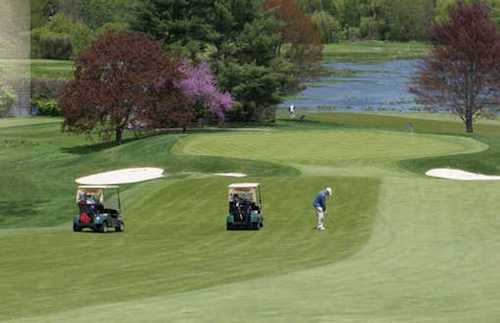Proposed NYS Tax Code Change Would Cause Steep Increase in Property Taxes for Golf Clubs
- Category: On Our Radar
- Published: Wednesday, 17 April 2019 18:14
- Joanne Wallenstein
 Westchester residents, many who are still reeling from the loss of federal tax deductions for state and local taxes, now face the prospect of another onerous change to the tax code. This time the code change is under consideration by NYS rather than the federal government. If enacted it could further impact the cost of living in Westchester’s suburbs.
Westchester residents, many who are still reeling from the loss of federal tax deductions for state and local taxes, now face the prospect of another onerous change to the tax code. This time the code change is under consideration by NYS rather than the federal government. If enacted it could further impact the cost of living in Westchester’s suburbs.
The proposed change in the state code could have far-reaching effects on local golf clubs. The proposed code, which has already passed the State Assembly Real Property Tax Committee, would change the way golf courses are taxed and assess them on their “highest and best use,” rather than current use. In other words, this would allow golf courses to be taxed as if they had already been subdivided and developed into residential homes rather than as golf courses.
If this did happen, real estate taxes for the country clubs would increase dramatically, and clubs would be forced to impose precipitous hikes in dues to their members. Some would likely go out of business.
And if many did close, imagine the burden on local infrastructure and schools if these golf courses were developed into housing … not to mention the loss of open, green space and the tree canopy.
A letter from the Board of Directors of Scarsdale Golf Club to their members says, “The bill sets a slippery slope precedent that could ultimately impact a wider universe of New York businesses and residents. If the proposed tax model is expanded beyond golf courses, New York home owners could conceivably one day receive a letter from their local assessor saying: "We've noticed that under the town's building codes your lot could be subdivided and your home replaced with two (or more) substantially larger houses. Therefore, beginning next year we will calculate your property tax based on the potential valuation of those larger houses...."
Here’s what NYS Assemblywoman Amy Paulin said about the proposed change in the tax code: “I’m not in favor of this bill. I don’t believe these properties should go from underassessed to overassessed in the blink of an eye.”
The bill is now being considered by the State Senate Committee on Local Government, which is chaired by State Senator James Gaughran.






